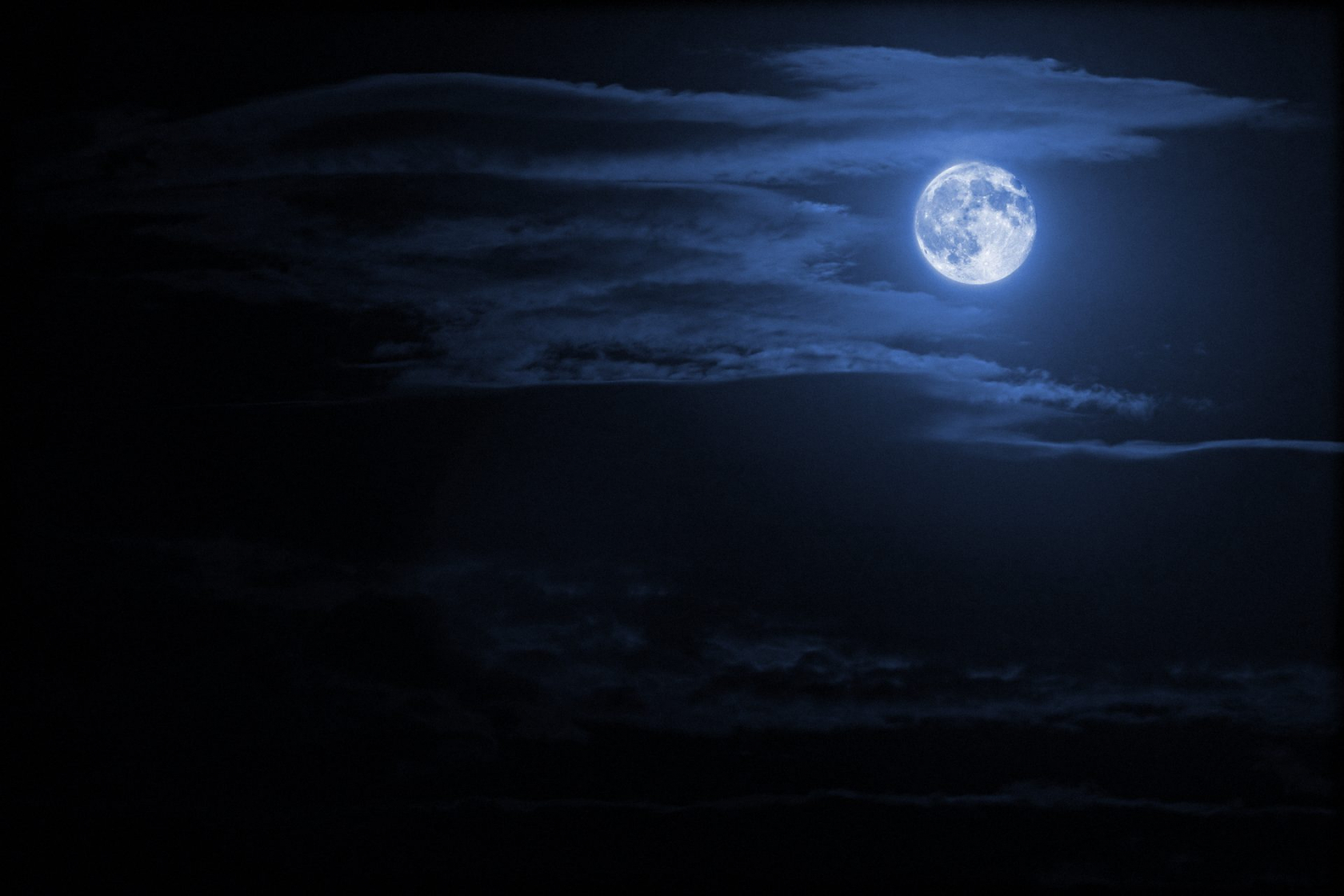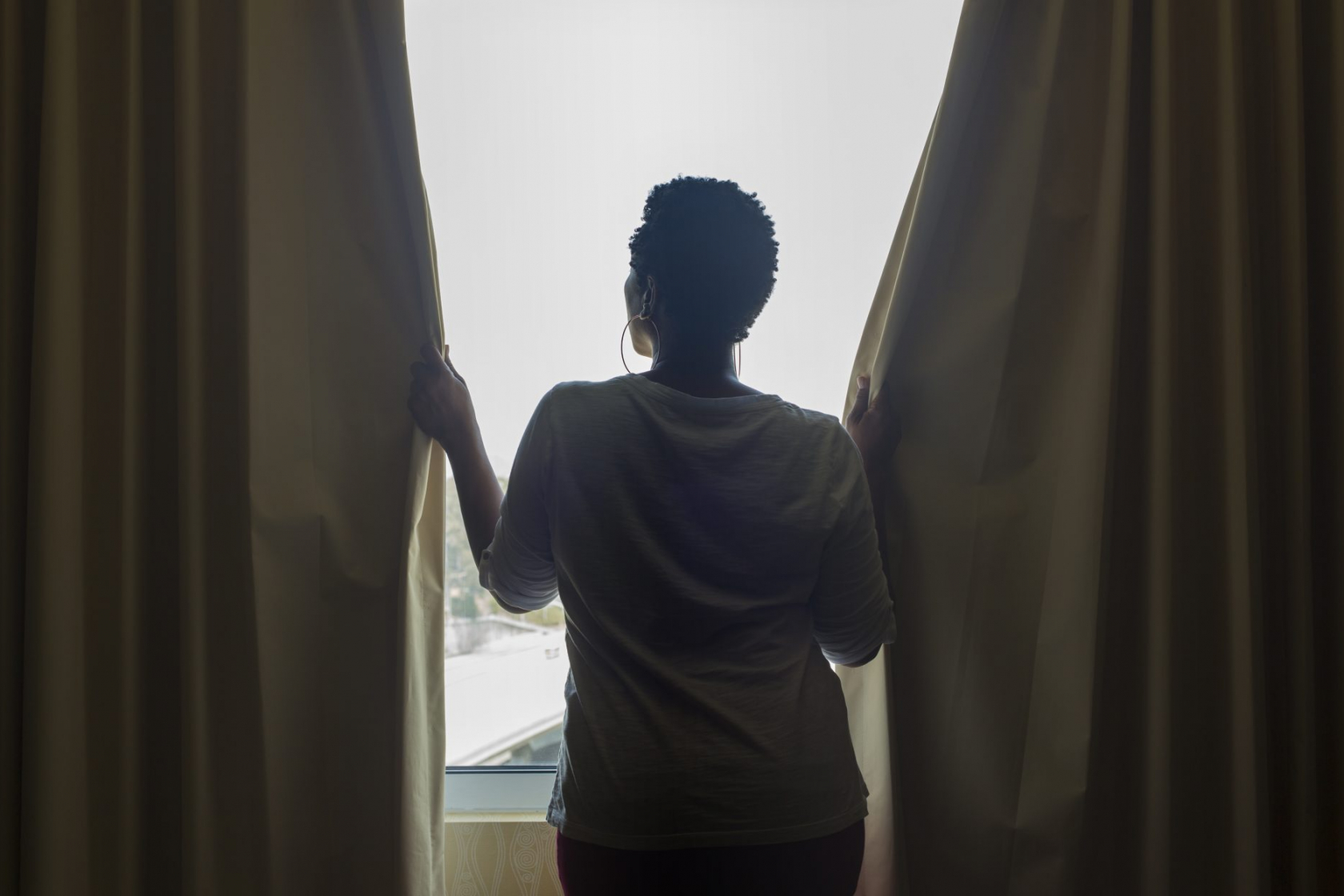Written by Lauren Geall
As Stylist’s digital writer, Lauren Geall writes on topics including mental health, wellbeing and work. She’s also a big fan of houseplants and likes to dabble in film and TV from time-to-time.
Welcome to Sleepless Nights, Stylist’s weekly series designed to help you put your anxiety and worries to bed (and get a good night’s rest in the process). This week, we’re exploring how the moon can affect sleep, and what you can do about it.
If you type the words “why can’t I sleep” into Google, chances are you’ll be met with a long list of lifestyle-related explanations such as too much screen time or not enough daylight exposure.
But the choices you do or don’t make during the day aren’t the only reasons why you might find it difficult to sleep at night – the moon could have a role to play, too.
You may think that the idea sounds a little far-fetched, but stay with us. Numerous studies have actually proven the relationship between the moon’s lunar cycles and human sleep patterns, and there are a number of science-backed explanations as to why this is the case.
So, to find out more about how and why the moon might be impacting our sleep – and what we can do to remedy this impact when there’s a full moon about – Stylist spoke to Dr Verena Senn, neuroscientist and head of sleep research at Emma – The Sleep Company. Here’s what she had to say.
How and why does the moon influence your sleep?

The main reason why the moon (and specifically the full moon) can disrupt your sleep is due to the amount of blue light it emits into the night’s sky.
“Our natural circadian rhythms are intrinsically linked to the four phases of the lunar cycle and are disrupted leading up to the full moon,” Dr Senn explains. “As the moon passes through each phase, it emits more light during the night, which directly impacts our sleep. While the light may not be as disruptive as sunlight, it’s actually the moon’s bluish light that can wreak havoc on our sleeping patterns.”
In the same way that the blue light emitted from your phone can keep you awake, the blue light from the moon can impede the production of melatonin – the sleep hormone which makes you sleepy – and increase levels of the stress hormone, cortisol, which keeps you awake.
It’s for this reason why your sleeplessness is likely to be at its peak when the moon is at its brightest (aka, during a full moon).
“The lower the amount of bluish light we are surrounded by, the easier it is for us to produce melatonin,” Dr Senn adds. “The higher our melatonin levels, the faster we get tired and fall asleep easier.”
How can you negate the impact of the moon on your sleep?

Because the main reason why the moon impacts sleep is to do with the blue light it emits, the number one way Dr Senn recommends negating this impact is by reducing the amount of light in your room and taking steps to boost your melatonin production.
“To help you fall asleep at night during a full moon, try using blackout curtains to prevent bluish light emitted by the moon to enter your room,” she says.
“Using or having a lamp with a red light bulb can further support sleeping well, as reddish light boosts melatonin production. This has been proven by a study by Zhao et al (2012), which confirmed the effectiveness of red light therapy exposure in increase melatonin levels and improvement in the quality of sleep of 20 elite female basketball players from China.”
Another step you can take to negate the impact of the moon is to reduce your exposure to other blue light sources such as your phone or TV, which also have the power to keep your mind stimulated, too. “If you really can’t or don’t want to avoid using technology, use blue light filtering glasses or switch your device to night mode,” Dr Senn recommends.
Finally, Dr Senn suggests sticking to a sleep schedule will help to keep your circadian rhythm in check.
“Regardless of whether the moon is full or not, it’s recommended to set and stick to a regular sleep schedule that incorporates sleep-improving techniques to prepare you to sink into your slumber easier,” she says. “If your circadian rhythm is adjusted to falling asleep and waking up at certain times, you’ll find it easier to fall asleep during the full moon.”
Images: Getty
Source: Read Full Article
